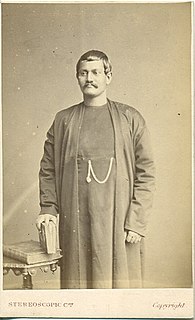A Quote by Thomas Carlyle
There is endless merit in a man's knowing when to have done.
Related Quotes
History is for human self-knowledge. Knowing yourself means knowing, first, what it is to be a person; secondly, knowing what it is to be the kind of person you are; and thirdly, knowing what it is to be the person you are and nobody else is. Knowing yourself means knowing what you can do; and since nobody knows what they can do until they try, the only clue to what man can do is what man has done. The value of history, then, is that it teaches us what man has done and thus what man is.
Knowing that everything comes to an end is a gift of experience, a consolation gift for knowing that we ourselves are coming to an end. Before we get it we live in a continuous present, and imagine the future as more of that present. Happiness is endless happiness, innocent of its own sure passing. Pain is endless pain.
A man of knowing attains to a sense of humour. Let this always be remembered. If you see someone who has no sense of humour, know well that that man has not known at all. If you come across a serious man, then you can be certain that he is a pretender. Knowing brings sincerity but all seriousness disappears. Knowing brings a playfulness; knowing brings a sense of humour. The sense of humour is a must.
Only by spiritual practice can we break through our karma and the effects of the causes we have made. Only then can we escape from them. It matters not whether you have acquired any merit. Merit is merit. Karma is karma. Nonetheless, if one practices the Quan Yin Method, one can be liberated regardless of having any merit or not. It is so logical, so scientific.
I once heard a spiritual man say that he was not so much astonished at the things done by a soul in mortal sin as at the things not done by it. May God, in his mercy, deliver us from such great evil, for there is nothing in the whole of our lives that so thoroughly deserves to be called evil as this, since it brings endless and eternal evils in its train.









































